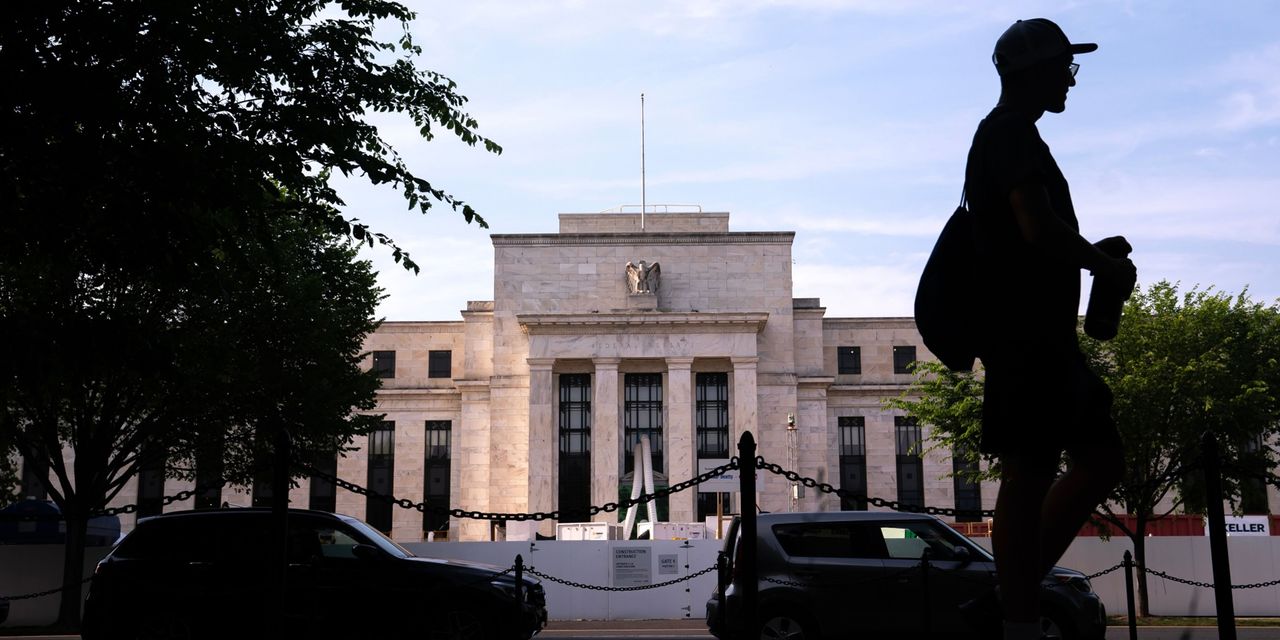Elon Musk isn’t the only person who longs for a crystal ball these days. A number of prominent executives admitted during second-quarter earnings calls that it is hard to know which way the economy is heading, although many are optimistic that the U.S. will avoid a full-blown recession this year, and maybe even next.
“One day, it seems like the world economy is falling apart. And the next day, everything is fine. I don’t know what the hell was going on, to be totally frank. I wish I did,” Musk said last week during
Tesla’s
(ticker: TSLA) earnings call.
Many investors can relate to that sentiment—and more than a few CEOs can, as well. Dominic Ng, CEO of regional bank
East West Bancorp
(EWBC), called the macroeconomic situation “uncertain” during the bank’s second-quarter earnings call. “Anyone [who] said that they know exactly what’s going on in the future is kidding themselves, right?” he said. “We really don’t know. With the [interest] rate spike like that, I thought the recession [should] have already arrived by now. It didn’t.”
The CEOs of some leading financial firms and major corporations are more upbeat and expect a so-called soft landing for the economy, wherein the Federal Reserve brings inflation back down to its 2% target without clobbering demand and triggering a major recession.
“I think the Fed is going to successfully engineer a soft landing. I think it will probably happen in 2024,” Chris Gorman, CEO of
KeyCorp
(KEY), said during a July 20 earnings call.
“I think the soft landing feels right,”
PNC’s
(PNC) Bill Demchak said.
Tim Spence, chief executive of
Fifth Third Bancorp
(FITB) similarly said it was “very possible” that the economy achieves a soft landing.
Hilton Worldwide Holdings
(HILT) raised its full-year guidance, with CEO Chris Nassetta saying he feels “very good” about momentum right now. He expects there will be a slowdown, but it will be more of a—you guessed it—soft landing.
The positive shift in executives’ outlook has been reinforced by recent economic data. The preliminary estimate of second-quarter gross domestic product came in much higher than expectations, at a seasonally adjusted 2.4%, annual rate, driven in large part by business investment.
McDonald’s
(MCD) CEO Chris Kempczinski told investors this week that the fast- food giant is exploring new markets for a future restaurant footprint. “There’s a number of places around the U.S. where we are significantly underdeveloped relative to where the population exists today,” he said. “That opens up for us a whole bunch of development opportunities.”
Diminishing inflation also has much to do with bosses’ more benign outlook. Headline inflation cooled to 3% in June, as measured by the consumer price index, while unemployment remained near historical lows. “In the U.S,. the tight labor market keeps pushing the timing of this elusive recession later into this year or 2024, with the robust demand for services providing a backstop for the economy,” said
Citigroup
(C) CEO Fraser said.
Although the pace of consumer spending moderated in the latest quarter, many top executives see the Americans as fairly resilient. “Both the lower-income consumer and our higher-income consumers are showing really good strength,” Brian Niccol, CEO of
Chipotle Mexican Grill
(CMG), said this past week. “We’re not seeing any weakness in the lower-income consumer. If anything, they’ve continued to improve.”
Other corporate leaders hedged a bit more, saying the U.S. might slip into a recession—but caveating that the downturn would be mild. “We think there’s probably a fairly equal weight probability that we’ll either see a soft landing or a mild recession. And if we do get a recession, our models would indicate it would be short and shallow either late this year or early in 2024,” Andy Cecere said during
U.S. Bancorp’s
July 19 earnings. He added U.S. Bank has one more rate hike by the end of the year modeled in.“Big picture, we think the Fed is close to being done.”
Mentions of a soft landing during earnings calls so far this quarter are up 97% over the year’s first quarter, according to data pulled from AlphaSense on Thursday.
JPMorgan Chase
(JPM) CEO Jamie Dimon was relatively quiet during his company’s quarterly earnings call, but chose to highlight that the U.S. consumer is in “good shape,” and that this is good news. “Even if we go into recession, we’re going with rather good conditions, low borrowings, and good house-price values still,” he said.
But Dimon called the headwinds facing the U.S. economy—the war in Ukraine, energy price volatility, and the challenges posed by quantitative tightening“substantial and somewhat unprecedented.”
“We don’t know if those things could put us in a soft landing, a mild recession, or a hard recession,” Dimon said.
We’ll have to wait for third-quarter earnings season to learn more.
Write to Megan Leonhardt at [email protected]
Read the full article here





